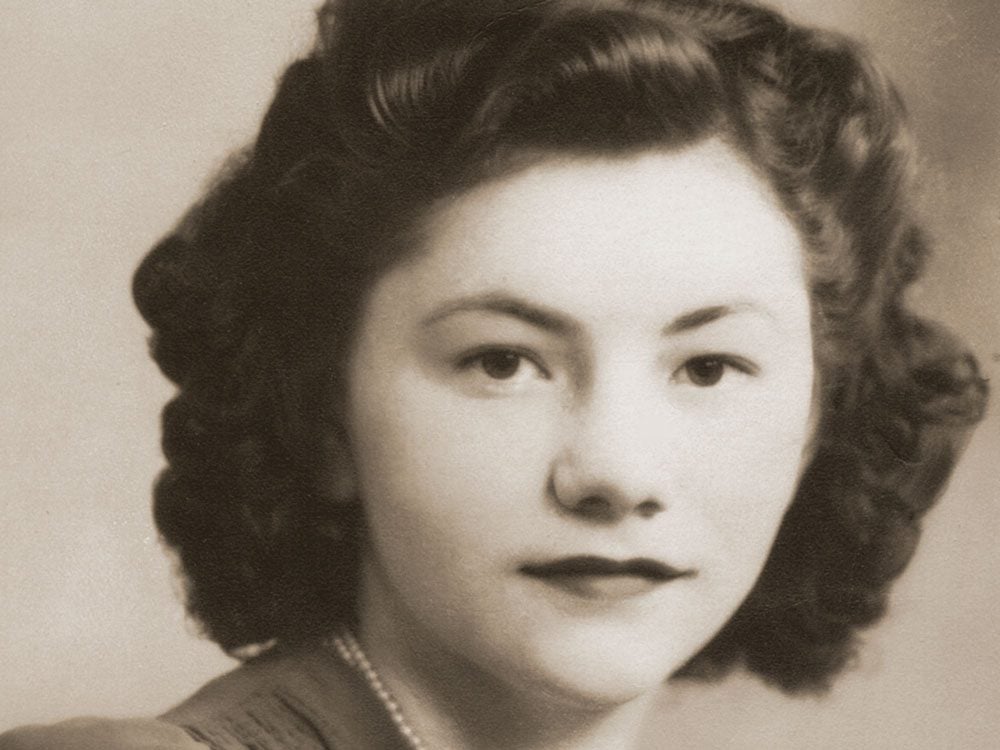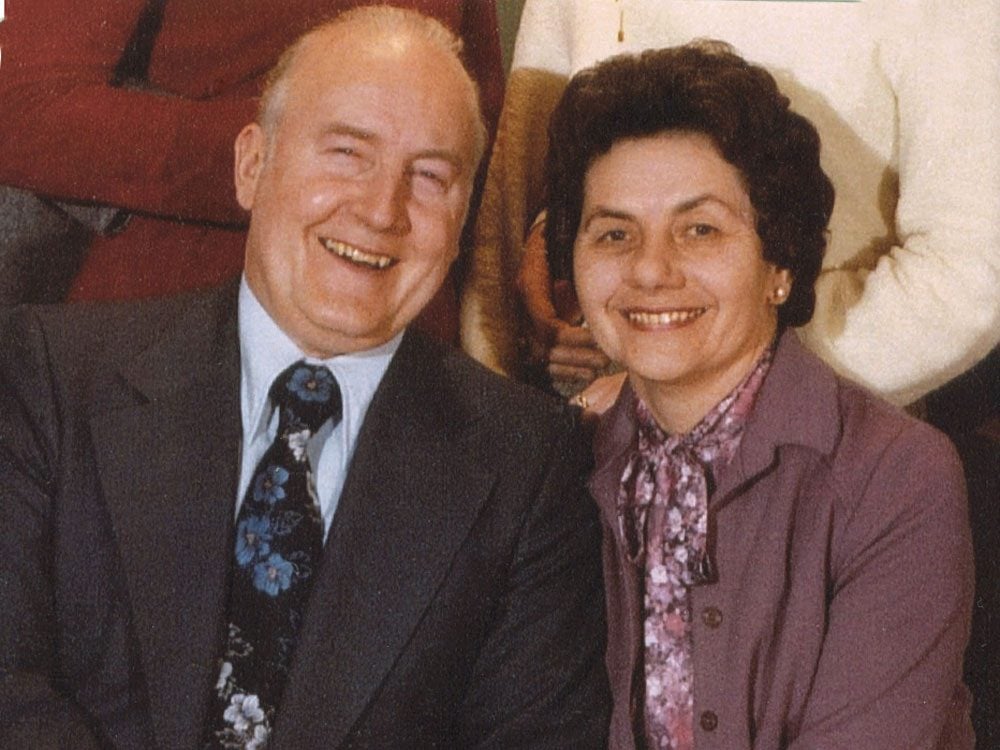
Life in Saskatchewan During the Great Depression
I was born in the small town of Balcarres, Saskatchewan, in 1927, to German immigrant parents, Philip and Caroline Belzer. I was the youngest of nine children. In the first nine years of my life, we lived on three different farms, the last one being in Strasbourg, Saskatchewan. I know we were there for three years, because the crops failed each year we were there due to bad weather.
Like most farmers, Dad grew wheat, barley and oats. When the crop was good, he sold it to the grain elevators. I grew up during the Depression years, and so life was hard, but we always had plenty to eat. We raised pigs and had our own smokehouse, so Dad was able to enjoy his bacon, strong coffee and rye bread for breakfast every morning.
My happiest memories were the times I helped Mom in the garden. My special assignment was to find and squash the potato bugs that could ruin a crop in no time. My other job was collecting fresh eggs from the hen house.
Along with potatoes, we also grew other vegetables, such as turnips and carrots, which Mom stored in the root cellar. This way we could enjoy hearty soups and stews all winter. We had six or seven brown-and-white milk cows. I couldn’t get the hang of milking so I was content to watch my brothers do it. I had my own tin cup, which the boys filled for me. I drank the warm milk right on the spot. It was so good! Mom would also make butter and take it, along with the cream, into town to exchange for flour and sugar.
Mom was a good cook. Her pies and homemade ice cream were the best I ever tasted. They were very popular during harvest time, when the neighbours came over to help. That’s what people did in those days. Neighbours would help neighbours. They had to work fast and hard because the weather could be unpredictable and at times, violent.
When I was about six years old, a cyclone came through town. It blew the front window in and Dad had to nail the kitchen table over it to keep the rain out. Even so, the storm flooded the farmhouse and Dad had to lay raised wooden planks on the floor so we could walk across it. The cyclone also destroyed all our poor chickens when the henhouse became airborne and landed on the other side of the fence. For a small child like me, it was a scary time—but also a big adventure.
Our rented farmhouse consisted of four or five bedrooms. There was no heat upstairs, so in winter we dashed down to the wood-burning stove in the kitchen to warm up. Our kitchen was a hub of activity. We bathed in a round, galvanized tub in front of the wood stove. During the week, the tub was used for washing clothes and bedding. Everything was done by hand—there were no washing machines in those days.
Dad was illiterate, so it was Mom who read to us in the warm kitchen, usually a serialized story from a German newspaper, which we could understand.
The winters were long and cold, but we spent many happy hours skating on the frozen pond. It was so exhilarating! In warmer weather, we walked the two miles to school. But when it was really cold, Dad would take us in a closed cutter (sleigh) that just flew across the snow.
In summer, we played hide-and-seek in the tall grain fields and gorged on wild strawberries, which grew on the edge of the neighbour’s property. All of us children knew how to ride horses. I was given a gelding named Dick who was way too big for me. I was too nervous to ride him, so most of the time I rode bareback behind my sister on her gentle mare, Queenie. When she started to gallop though, we had to hang on for dear life! Most of the time, we ended up falling off her.

A Family on the Move
I went to school in a one-room schoolhouse with Grades from 1 through 10. The teacher had us all divided according to our different levels, but it must have been quite a challenge for her to meet everyone’s needs.
I enjoyed school and did well there but after three disastrous crop failures, Dad had had quite enough and was ready to give up farming and move away. He sold everything we owned, including our livestock. We had to leave our dogs behind with the neighbours, which really made me sad. We moved to Winnipeg and lived there for seven years. During that time, we moved houses four times, trying to make do on a small wage. Dad found odd jobs but money was tight.
In time, Dad heard of work in Terrace, B.C., building army camps. He left us and headed west, sending money home to help us. When the job was completed in less than a year, he decided to visit Vancouver. He fell in love with the city and convinced my mom, my sister and me to join him there. So we were off again. To earn a living, Dad put a down payment on a rooming house in the city, fixed it up and rented out the rooms. In time, he built two or three other homes and sold them. He was quite successful in his later years.
At age 16, I got a summer job and when September rolled around, I decided to quit school and keep working to help Mom and Dad with expenses. I worked at the credit office at The Bay for a while and then at Eaton’s for six years doing the same work, which I really enjoyed.
In 1951, I met and married my husband, Maury. We were married for 58 years and had five children. Life has had its ups and downs, but I continue to have a positive attitude and keep myself mentally active. Now in my nineties, my mind is still sharp and I spend a lot of time reading. I enjoy looking back on the good old days and reminiscing on those earlier times. Life is so different now, but back then, that was the way it was.
Next, check out an incredible essay that serves as a time-capsule of life in the Prairies during the Great Depression.